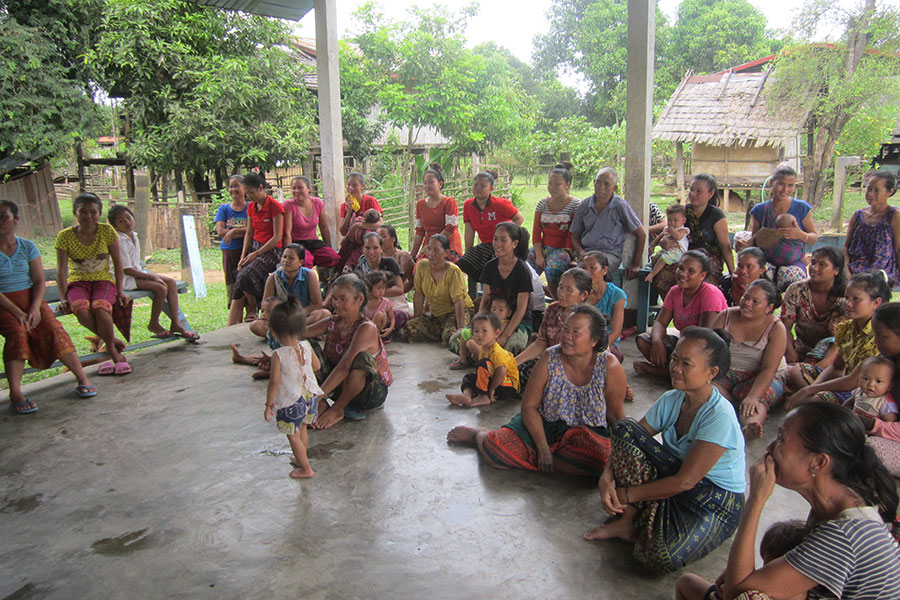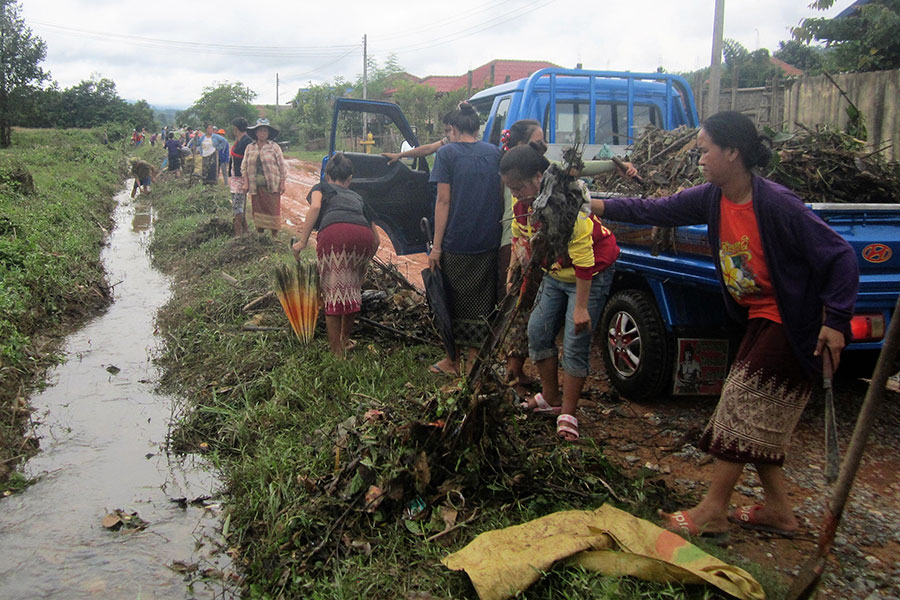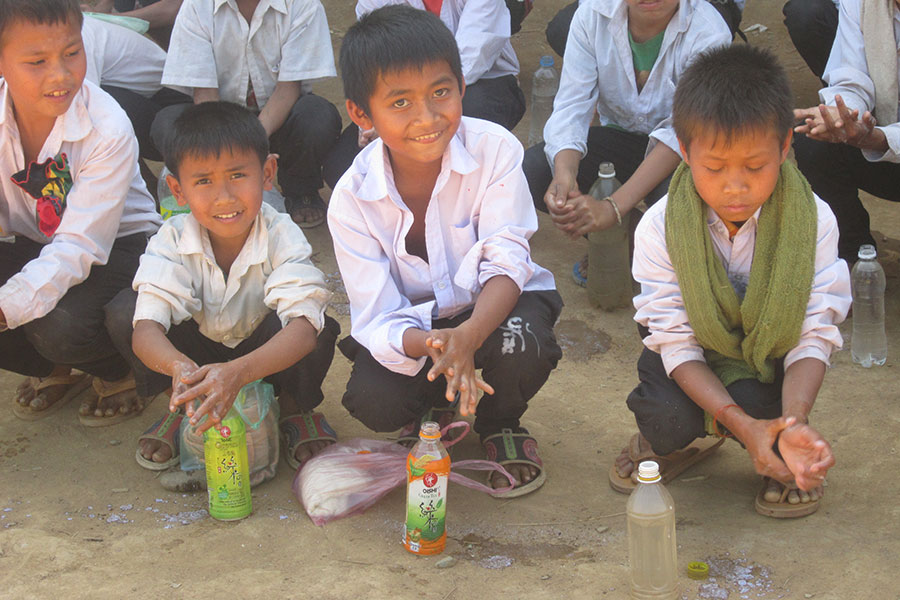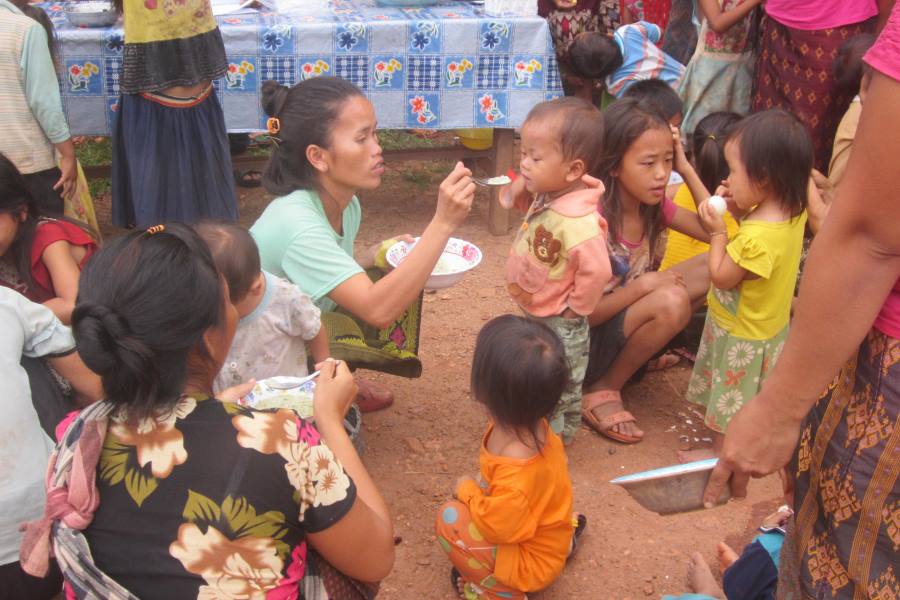Child Aid
The approach
From 2011 to 2017, HPP Laos implemented two Child Aid projects in Bolikhamxay Province in central Laos. In total, around 3,200 families in 19 villages of Bolikhan and Pakxan Districts participated in and have benefitted from the activities. Child Aid is centred on a community-based approach through which children, their families and their communities are mobilised to organise themselves and take action to improve the lives of children under 5. The concept is holistic and targets various areas of children’s development through its five lines: health, water and sanitation, nutrition, income generation (by families), and active participation of children in society.
To ensure sustainability, Child Aid sets up Village Action Groups in which families can take matters in their own hands beyond the scope of projects. Within these groups, villagers meet once a fortnight to conduct practical and theoretical training sessions, and to participate in discussions about their progress on mutually agreed targets related to the wellbeing of their children. Throughout the projects, HPP Laos' Project Leaders closely cooperated with local government authorities.
The rationale
In Lao PDR, child mortality rates are decreasing slowly due to a multitude of factors. According to the World Health Organization, the poor nutritional status of many children is one of them: In 2016, a third of all Lao children under 5 were stunted, while a quarter were underweight and 9% were wasted. Malnutrition severly affects children's physical and mental development, and stunting threatens the country's development while also impacting on communities' overall wellbeing. HPP Laos' Child Aid projects were located in some of Bolikhamxay's poorest villages and focused on Hmong ethnic groups.
The achievements
Health
- Education of families on maternal and children's health, including fostering mothers' trust in the public health care system. Now women are more comfortable seeking medical assistance during pregnancy and after giving birth. Sessions on family planning were also part of the training.
- Families were mobilised to have their children vaccinated at Health Centres.
- Children under 5 received two annual check-ups at Health Centres.
Water, sanitation and hygiene
- Families have learnt about the importance of clean water and sanitary practices. Hand-washing campaigns were organised in schools.
- The projects supported families with materials for and guidelines on constructing household toilets. Ninety per cent of families now have their own toilets.
- In some project villages, community water systems supplying water from mountain streams were repaired or reinstalled. Each of these communities established a water committee to manage use and maintenance of the systems. Families pay a small monthly fee to the committees for securing the systems' maintenance.
Nutrition
- Families have been supported and trained to establish home gardens in order to improve nutrition and food security.
- In addition, the families were trained in how to breed and raise ducklings, frogs, fish, chickens and goats to add protein to their diet.
- The families received theoretical sessions on the importance of good nutrition, how to prevent malnutrition, the value of breast feeding, and much more.
- Teachers and students in 10 primary schools have been organised and trained in the establishment and maintenance of school gardens with the aim of providing healthy meals for the children.








